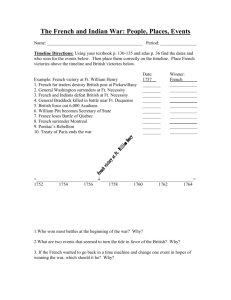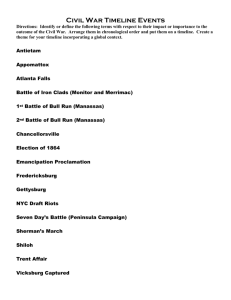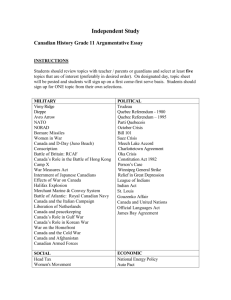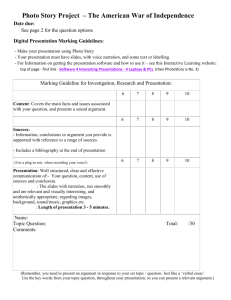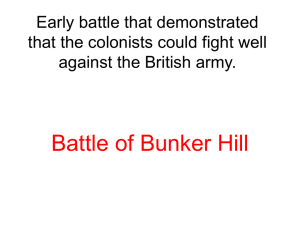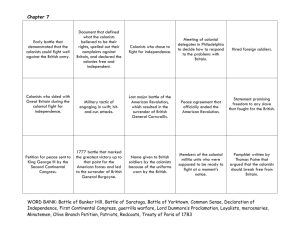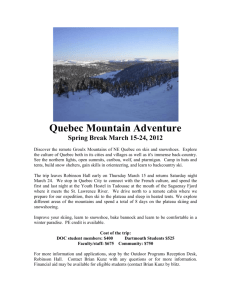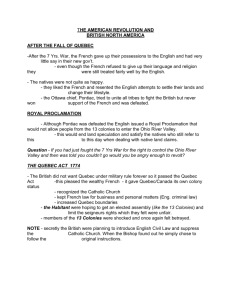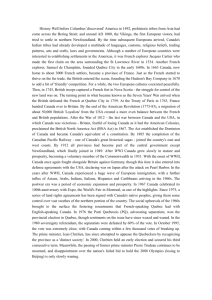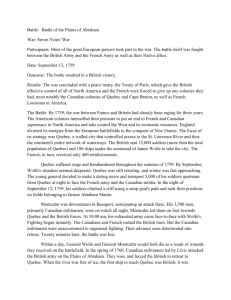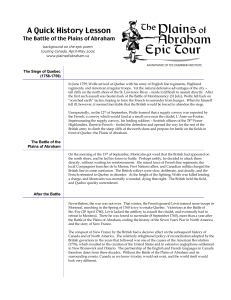The French and Indian War - Waukee Community School District Blogs
advertisement
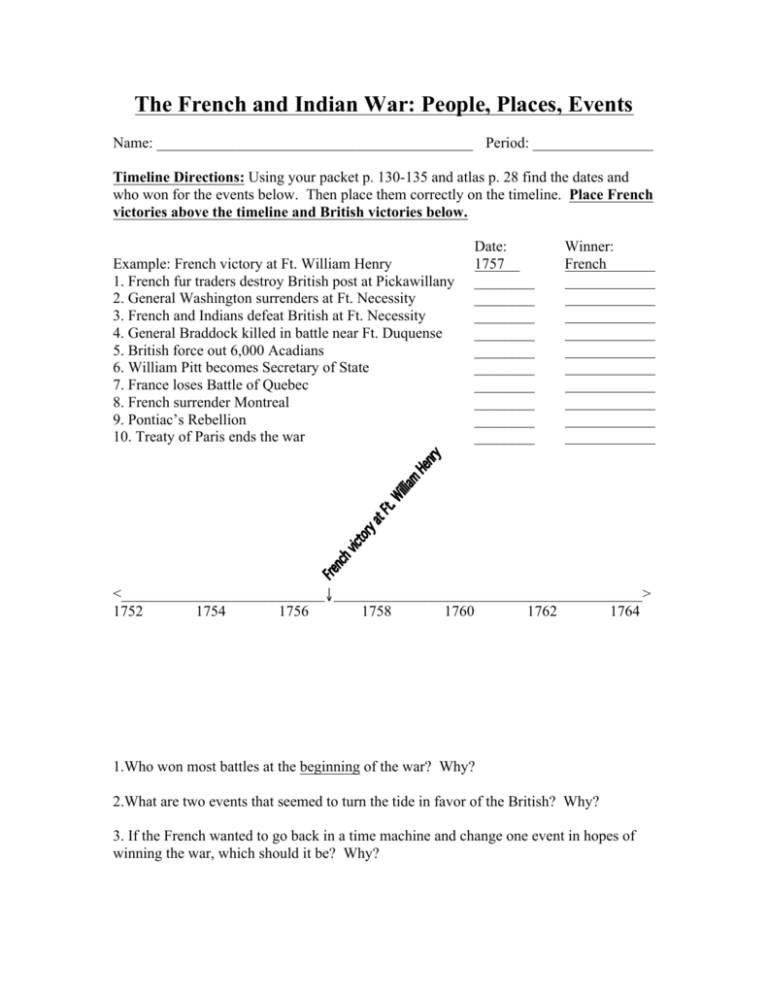
The French and Indian War: People, Places, Events Name: __________________________________________ Period: ________________ Timeline Directions: Using your packet p. 130-135 and atlas p. 28 find the dates and who won for the events below. Then place them correctly on the timeline. Place French victories above the timeline and British victories below. Example: French victory at Ft. William Henry 1. French fur traders destroy British post at Pickawillany 2. General Washington surrenders at Ft. Necessity 3. French and Indians defeat British at Ft. Necessity 4. General Braddock killed in battle near Ft. Duquense 5. British force out 6,000 Acadians 6. William Pitt becomes Secretary of State 7. France loses Battle of Quebec 8. French surrender Montreal 9. Pontiac’s Rebellion 10. Treaty of Paris ends the war Date: 1757 ________ ________ ________ ________ ________ ________ ________ ________ ________ ________ Winner: French <___________________________↓_________________________________________> 1752 1754 1756 1758 1760 1762 1764 1.Who won most battles at the beginning of the war? Why? 2.What are two events that seemed to turn the tide in favor of the British? Why? 3. If the French wanted to go back in a time machine and change one event in hopes of winning the war, which should it be? Why? Map Questions: Use the map on p. 28 of the Atlas to answer the following questions. 1. How and why did water routes play such an important role in this war? 2. What made controlling Ft. Duquense/Ft. Pitt so important to both sides? 3. What natural feature made moving the British Army from the Atlantic coast to the Ohio R. valley so difficult? 4. What country controlled most of the land in the 13 colonies along the Atlantic Ocean? 5. What country controlled most of the land in what is now Canada? 6. Why did the French loss at the Battle of Quebec lead quickly to the surrender of Montreal? People: Fill in the blanks below to find the names of important people in the French and Indian War 1. General Marquis de ___________________ led the French to early victories, but lost and surrendered at the Battle of Quebec. 2. French fur trader __________________________ led 250 Native Americans in an attack on trading post at Pickawillany. 3. General ____________________________ led British forces until his death in 1755. 4. _________________________________ became British Secretary of State in 1757 and sent more money and soldiers to help turn the tide of the war. 5. British General _______________________ bravely led his army to victory at Quebec. 6. Ottawa war leader _____________________ organized a rebellion against the British. 7. British officers invited Native Americans to talk and gave them ________________________________ blankets as gifts. 8. King George and the British issued the ___________________________________ that forbade colonists to settle West of the Appalachian Mountains. 9. The colonists were angry with the British at the end of the French and Indian War because they thought they had the won the right to ____________________________. 10. The British were angry with the colonists because they did not want to pay for ______________________________.
